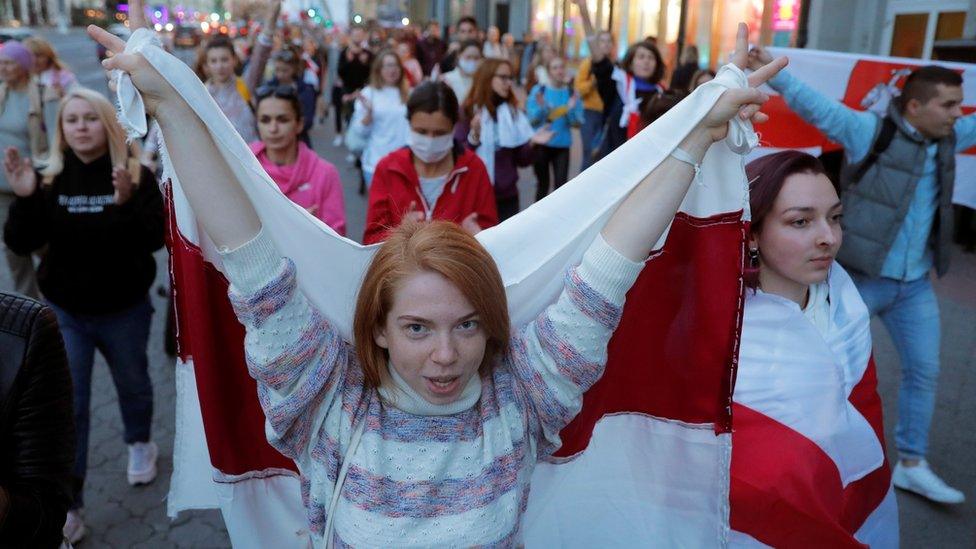Belarus protests: Maria Kolesnikova 'detained by masked men'
- Published
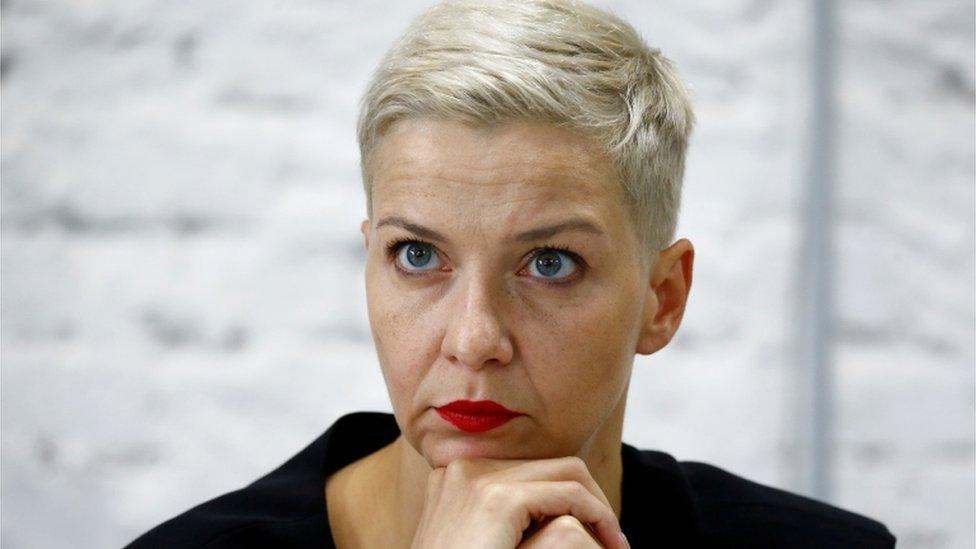
Maria Kolesnikova's whereabouts are unknown
A leading opposition figure in Belarus has gone missing, shortly after witnesses said she was bundled by masked men into a minibus in Minsk.
Maria Kolesnikova's whereabouts are unknown. Police have denied detaining her, the Interfax news agency reports.
Ms Kolesnikova was one of three women who joined forces to challenge incumbent Alexander Lukashenko in August's presidential election.
Mass protests followed his re-election amid allegations of vote-rigging.
More than 600 people were arrested on Sunday, following a fourth consecutive weekend of anti-government protests in the capital Minsk and other cities.
At least four people have died and hundreds have been injured as authorities have tried to crush dissent.
On Monday the EU urged Belarus's government to free those jailed, calling the arrests "arbitrary and unexplained".
EU leaders do not recognise the results of the election and have agreed to impose sanctions on Belarus, external. EU diplomats told Reuters news agency that the measures targeted 31 senior Belarus officials, including the interior minister.
Mr Lukashenko - who has been in power since 1994 - has accused Western nations of interference. On Monday the Kremlin announced he would visit Moscow for talks "in the coming days".
Russia has long been a close ally of Mr Lukashenko.
What happened to Maria Kolesnikova?
An eyewitness told Belarus news outlet Tut.by that she had seen masked men take Ms Kolesnikova's mobile phone and push her into a minibus on Monday morning.
Ms Kolesnikova is a member of the Co-ordination Council set up by the opposition to ensure a transfer of power. Government authorities have launched a criminal case against opposition leaders, saying the "creation and activity of the Co-ordination Council are aimed at seizure of state power, and at harming national security".
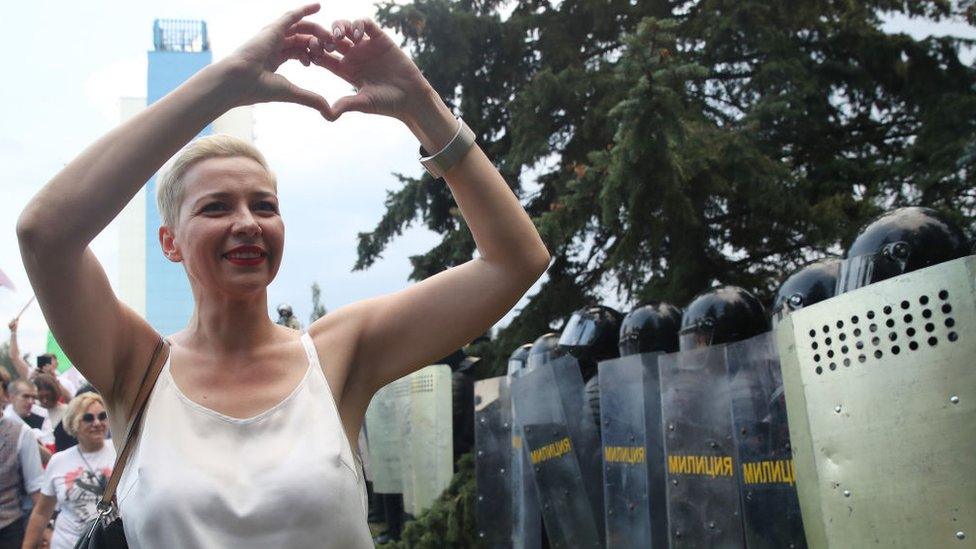
Last week, Ms Kolesnikova announced she was forming a new political party
She is the last of the three women who joined forces against Mr Lukashenko to remain inside Belarus. Veronika Tsepkalo and presidential candidate Svetlana Tikhanovskaya left the country soon after the vote.
Ms Tikhanovskaya said the latest detentions were an attempt to disrupt the work of the Co-ordination Council. "The more they try to scare us, the more people will take to the streets," she said in a statement from Lithuania.
Meanwhile, the Co-ordination Council said accused Mr Lukashenko of "openly using methods of terror".
The council said its press secretary, Anton Rodnenkov, and its executive secretary, Ivan Kravtsov, had also disappeared. Police said they had no information on the reported detentions.
The UK's Foreign Secretary, Dominic Raab, said he was "seriously concerned for the welfare of Ms Kolesnikova". He called on Mr Lukashenko's government to make her safe return its highest priority.
In an interview with BBC Russian last month, Ms Kolesnikova described the recent demonstrations as "not a struggle for power" but "a struggle for human dignity and self-respect". She said she and her team had decided against using bodyguards.
"No number of guards would be of any use if a bus full of riot police stopped us," she said. "We all know what a police state is capable of."
Another female activist, Olga Kovalkova, announced on Saturday that she had fled to Poland amid threats of imprisonment.
What happened on Sunday?
Eyewitnesses told Interfax that police began to make arrests in Minsk after the unsanctioned rally ended and people were going home. Video footage on Sunday shows men in plain clothes beating peaceful protesters with batons.
Protesters took to the streets of Minsk and demonstrated outside the presidential palace on Sunday
The interior ministry confirmed at least 633 arrests had been made across the country.
Internal Affairs Minister Yuri Karayev defended the actions of the security forces.
"They talk about the brutality of the Belarusian police, and I want to say this: there are no more humane, restrained and cool-headed police anywhere in the world," he was quoted as saying by the official Belta news agency.
In recent days, the security forces have targeted university students as they returned from their holidays, dragging some from the streets and university buildings into unmarked minivans.
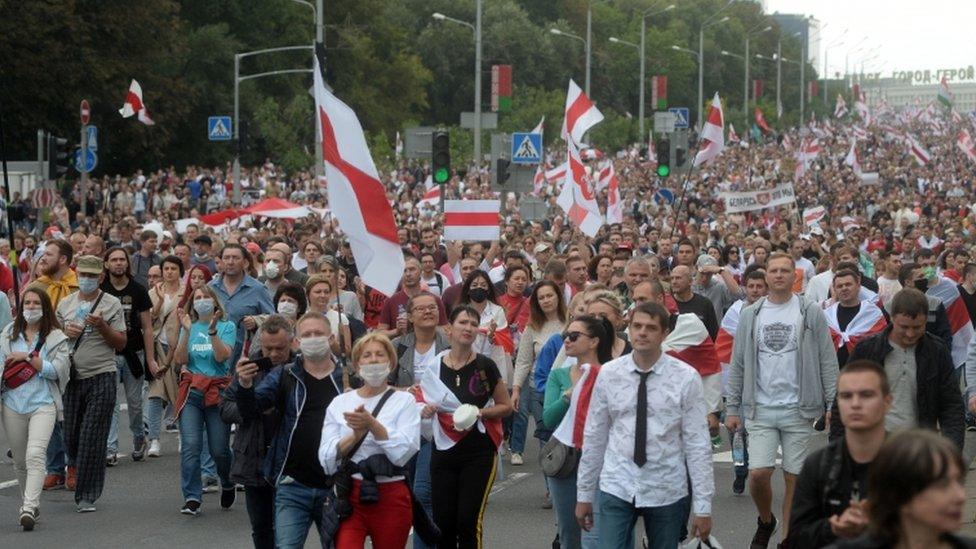
Sunday marked the fourth consecutive weekend of demonstrations in Belarus
One protester in Minsk, who gave her name as Lyudmila, told the BBC earlier that the demonstrators were undeterred.
"We are definitely not ready to get back to the life we had for many years now," she said.
"We finally feel like we matter because we've been living in apathy for way too long, and now we just have this feeling of solidarity... so that's definitely not the time to give up."
Protests have also been reported in other Belarusian cities and towns including Grodno, Mogilev and Gomel.
- Published7 September 2020
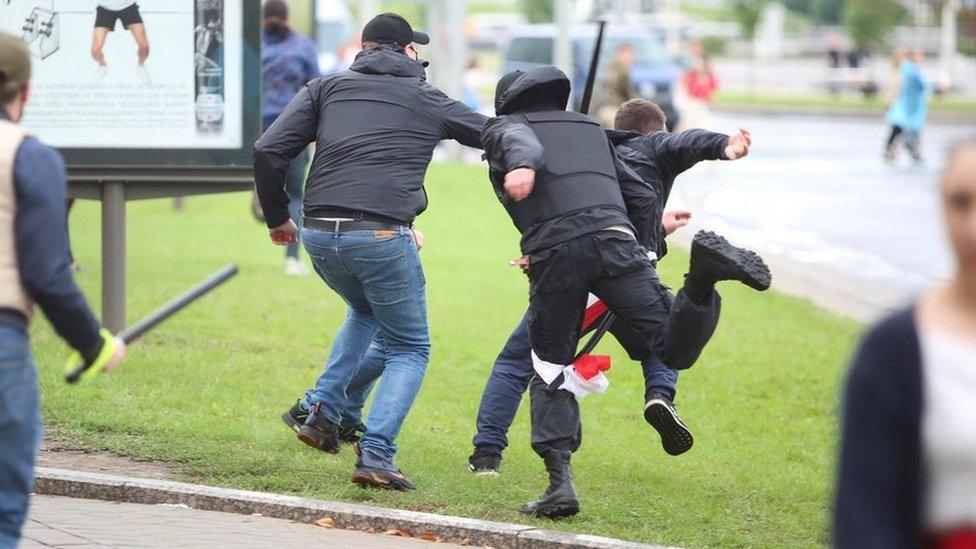
- Published1 September 2020
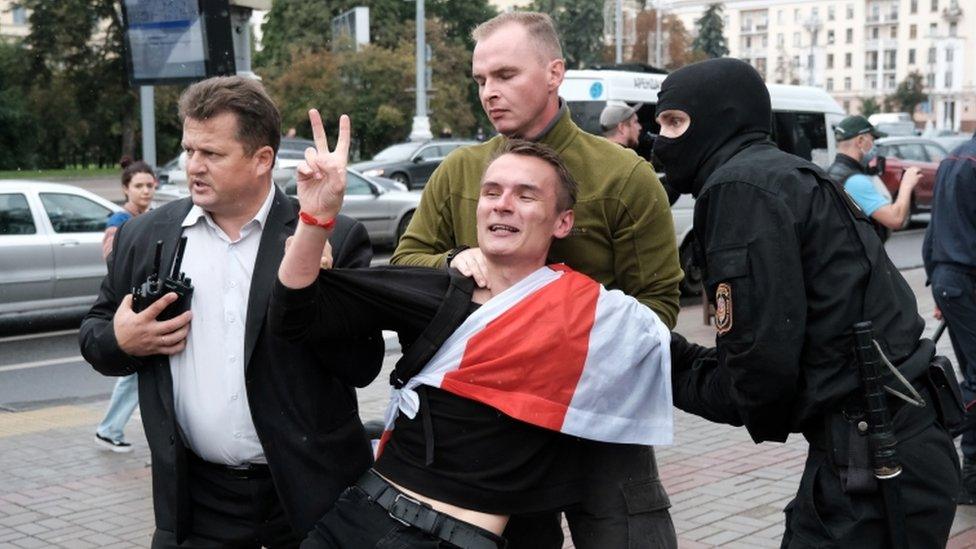
- Published29 August 2020
